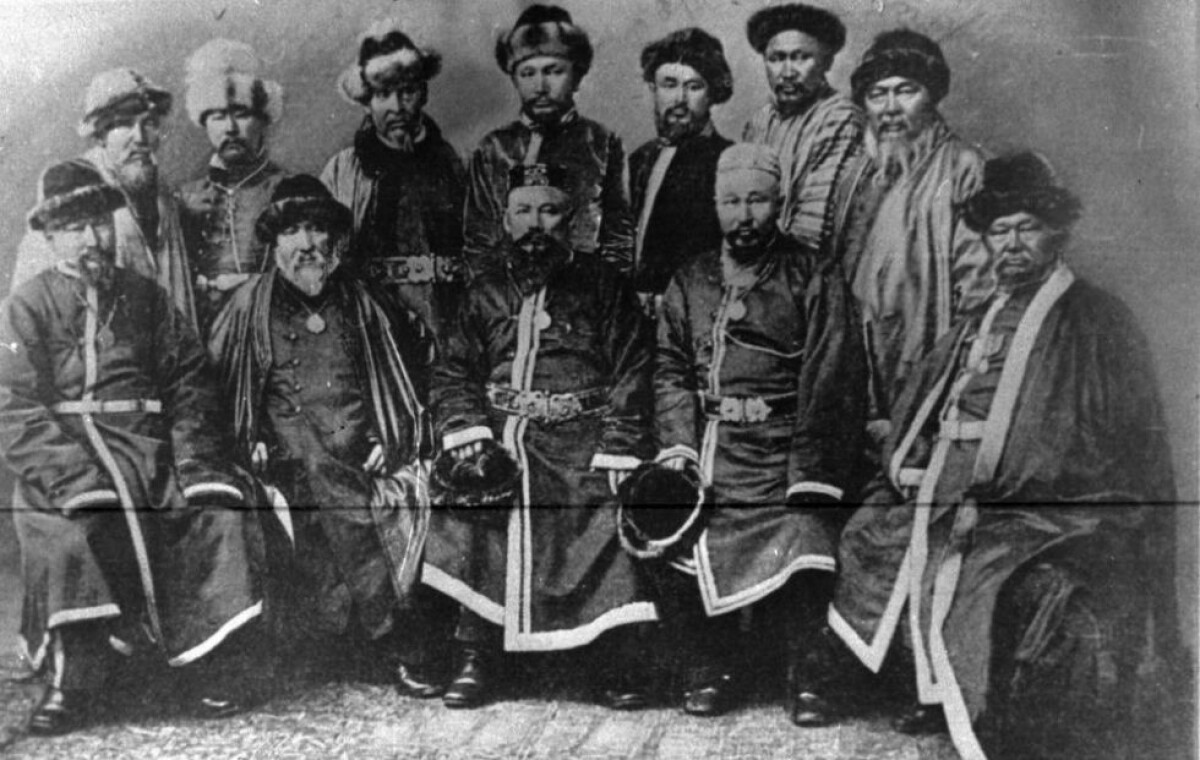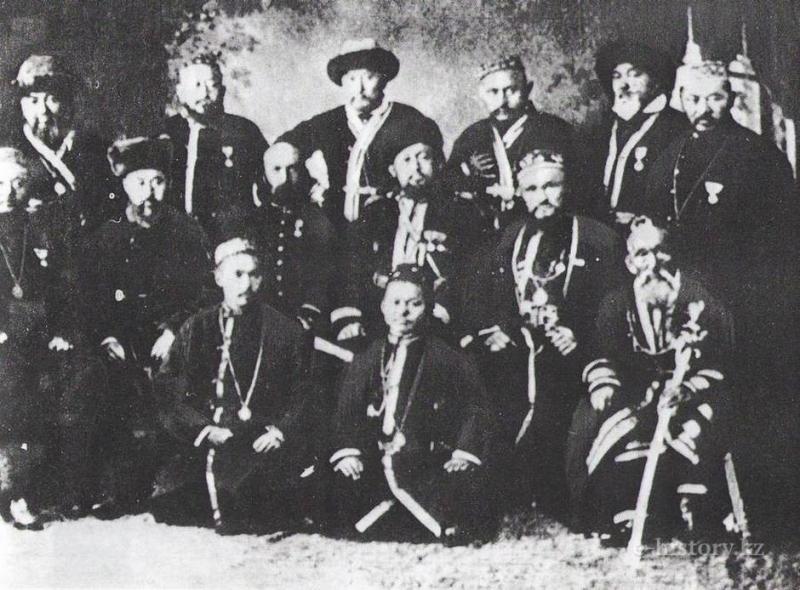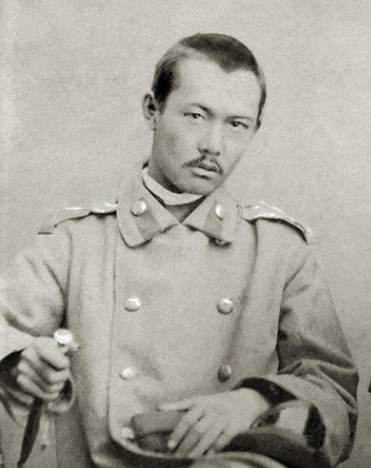
and with whom they were at swords’ points, so that, if necessary, use it in the interests of Russians
With the abolition of the khan's power, the Kazakh traditional management disintegrated, which existed for centuries, the role of biys and aksakals disappeared, and they sought to transfer power to loyal rulers, traitors who would listen to the authorities. Before the adoption of the decree, the tsarist spies compiled a list of well-off, influential people who enjoyed authority among the people, but at the same time loyal to the tsarist authorities - they considered a variant of their participation in colonization.
Wise Abay in his "Words of edification" said: “In ancient times there were people who were called "el basy", "top basy". They solved disputes, managed the life of society. Common people, at least, were engaged in their own affairs. It was not accepted to challenge the decisions of "el basy" and "top basy" or to run from one to the other...” (39th word) The Russian explorer P.I. Rychkov wrote about social system of nomads, too: “Every family reveres its aksakals and wealthy people. They proceed to a case if it is approved by the "ru basy" (progenitor)..”
Alikhan Bukeikhanov wrote: "In the past, Kazakhs gathered when they were going to march, or they chose their khan. But these two motives disappeared, with the adoption of citizenship of tsarist Russia. In the past, aksakals, biys from different localities, from different clans who came to the gathering, argued, defending the interests of their family, their community."
The colonialists created a list of people who enjoyed authority among the people, who stood for the interests of their family.
In 1842 the Border Management of Siberian Kazakhs ordered the district orders to compile a list of especially influential people among the Kazakhs. Information on people included in this list was published in the 8th volume of the nine-volume "History of Kazakhstan in Russian Sources, XVI-XX centuries". Orazgul Mukhatova, a researcher, wrote about this:

"The list included such advanced Kazakhs as: Kunanbay hadji, Gubaydolla Valikhanuly, Tattimbet Kazangapov, Mukhamedgali Taukeuly, and Nauryzbay."
We can say that the tsarist authorities never trusted the Kazakhs, so a list of the above-named respected people was created. Information was gathered about those who governed the people, found their strengths and weaknesses, if necessary, took into account even those with whom they were friends, and with whom they were at swords’ points, and ways of using them in the interests of the Russian authorities were already thought through. The colonialists did not even trust Chokan Valikhanov, a tsarist official. In his memoirs, a friend of Chokan G.N. Potanin wrote: "Chokan finished his studies one year ahead. Because, it was decided that he, as a representative of non-Russians, should not be allowed on the last course. Since, in the last year, purely military disciplines were taught: tactics, artillery, methods of defense."
By Beken KAYRATULY
Translated by Raushan MAKHMETZHANOVA
